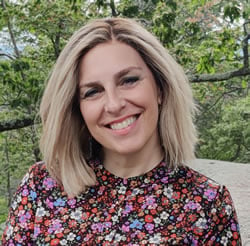Dear Reader,
“I’m drowning! I’m swamped with life’s demands!”
Whether it’s slaving away at our jobs, sinking into the insurmountable pile of bills, or worrying about the hundreds of big and little things that challenge us, how we can we stay afloat? When life comes rushing at us—leaving us with a never-ending “To Do” list, and making us feel confused and overwhelmed—how can we cope?
In Noach, we read about the great flood. The Hebrew word for flood, mabul, also means disorder and confusion. In a world full of disorder, our priorities can become skewed and distorted.
How did Noah handle the overwhelming floodwaters?
First, he built an ark.
The Hebrew word for ark is tevah, which also means “word.”
When the world is churning, threatening to drown the spark of vitality within us, we need to enter into the tevah—the world of words.
Find moments of solitude, to regroup and regain your composure. Find a perspective, through studying the words of Torah and meditating on the words of prayer. Carve out a time to discover a soothing haven of wisdom against the raging floodwaters of life.
We may not be able to save the world, but we can build for ourselves an ark, a sanctum of time—protected and filled with meaning.
Noah’s ark was built from gopher wood, which is soft and able to withstand the pressures of the floodwaters. A stronger but less flexible wood would have snapped. The Talmud teaches: “It is better to be as soft as a reed, than as hard as a cedar.”1
In dealing with the pressures of a sometimes hostile world, we benefit most by having a soft, yielding nature. Look for resolution rather than confrontation.
But the gopher wood was covered with pitch. Without this waterproof covering, the floodwaters could have seeped in and destroyed the ark. As much as we need to be supple and compromising, when it comes to matters of principle, morals, or ethics, we need to be impenetrable.
And finally, to test whether the earth was dry enough to be habitable, Noah sent out a dove who returned with an olive branch in its mouth. The dove is the universal symbol of peace. A raw olive is inedible. The olive’s precious oil is produced after processing. Only when we are at peace with ourselves can we find and process the precious potential within our surroundings.
Noah teaches us that to find our inner peace, we need to:
- Immerse in the tevah, the words of spiritual wisdom and prayer;
- Become more compromising in nature like gopher wood, while remaining impenetrable in our morals like pitch;
- See the potential around us, even in an inedible olive.
Then the raging waters calm down, and we are able to find the beauty and blessing hidden in every person and every creation.
When Noah emerged, he beheld a new world. And we can, too.
Chana Weisberg.
Editor, TJW
Taanit 20b.







